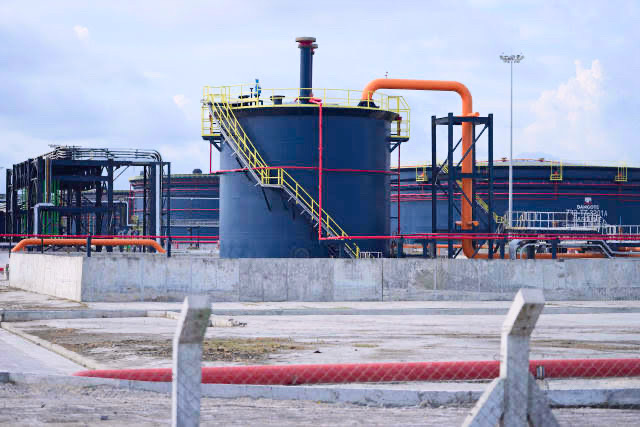Nigeria Braces for a Major Shift in its Oil Refining LandIn a significant move set to transform Nigeria’s energy landscape, the Dangote oil refinery is on the brink of initiating test runs following the arrival of its sixth crude cargo on Monday. This milestone, highlighting the conclusion of extensive construction efforts, ushers in a new era for the 650,000 barrels per day (bpd) plant.
Owned by Aliko Dangote, Africa’s wealthiest individual, the $20 billion refinery located in Lekki, on Lagos’ outskirts, is poised to redefine the African oil industry. With Nigeria predominantly reliant on fuel imports, this refinery is anticipated to establish the country as a self-sufficient fuel producer and a significant player in West Africa’s oil market.
The refinery received a million-barrel shipment from the Agbami field in the Niger Delta, accumulating a total of 6 million barrels since December. This influx of crude oil sets the stage for imminent operational tests, according to statements from Dangote’s spokesperson.
Revolutionizing Refinery Operations and Regional Fuel Supply
A senior executive at Dangote, preferring anonymity, conveyed that the immediate focus is on initiating the crude distillation unit, a crucial component of the refinery. This process, expected to start this week, marks the first step towards full-scale production.
The refinery’s initial output is slated to include a limited range of products, with the variety and volume set to expand as various departments commence operations. According to industry experts, transitioning from test runs to producing high-quality fuels at full capacity can span several months.
Dangote’s ambitious plan involves refining 350,000 bpd initially, with aspirations to escalate to full capacity within the year. This strategic move could challenge the dominance of U.S. and European energy companies in Africa, significantly impacting oil trading dynamics in the Atlantic Basin.
A New Dawn in Nigeria’s Energy Independence
The completion and operation of the Dangote refinery represent a pivotal shift for Nigeria, potentially curtailing its long-standing dependency on fuel imports. This development is not just a testament to the country’s industrial capabilities but also a potential catalyst for economic transformation.
The refinery’s impact extends beyond Nigeria, with implications for the entire West African region. As a hub for fuel production and export, Nigeria is set to assume a more influential role in regional energy dynamics.



